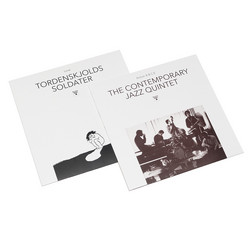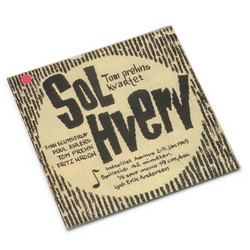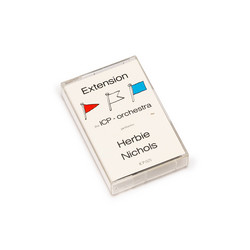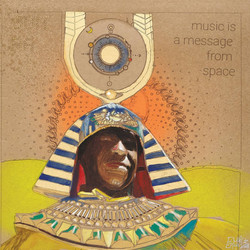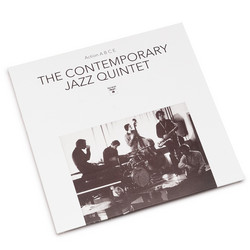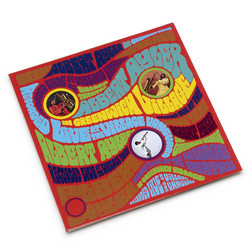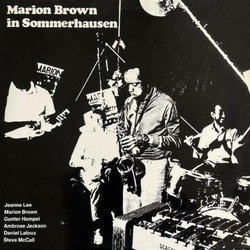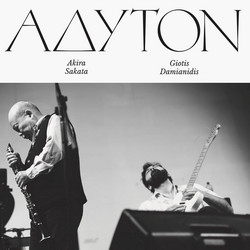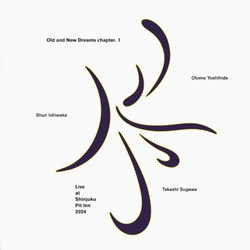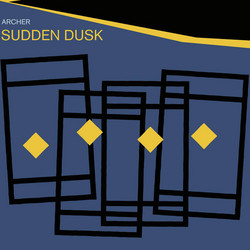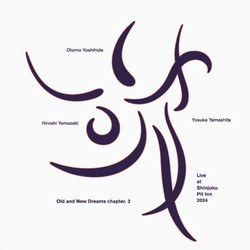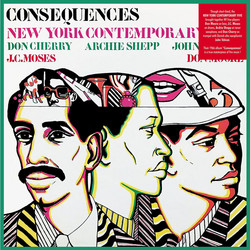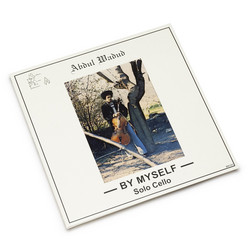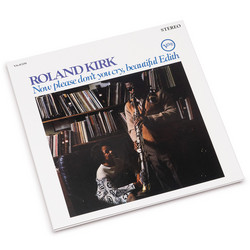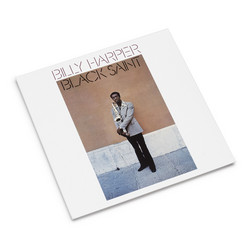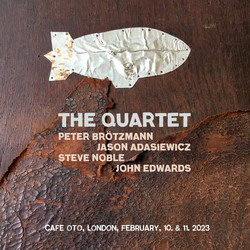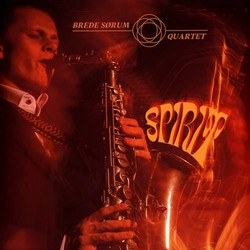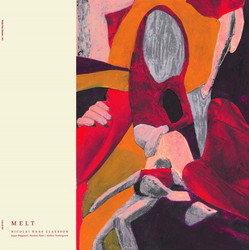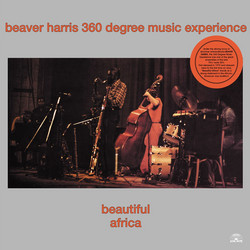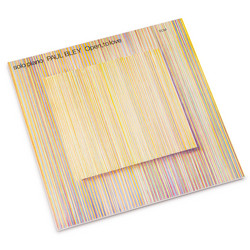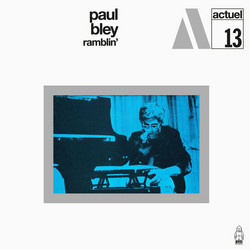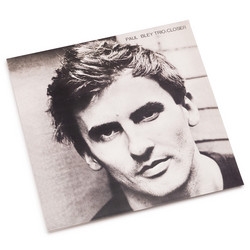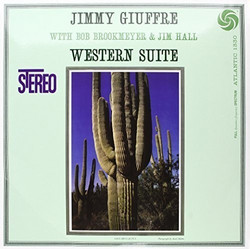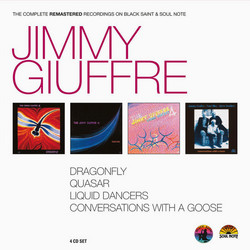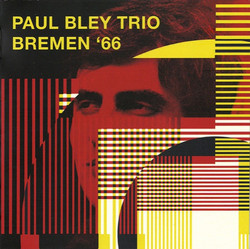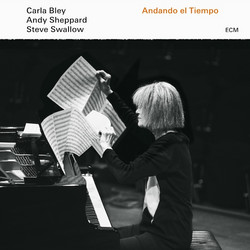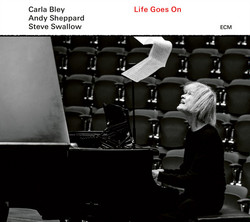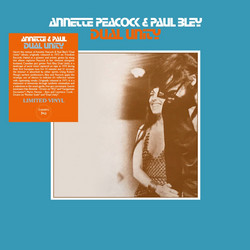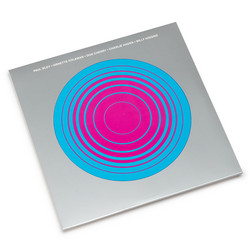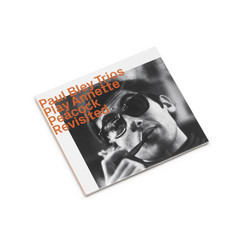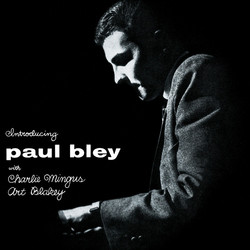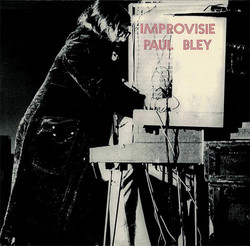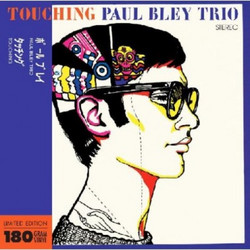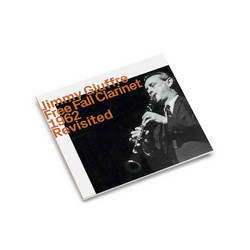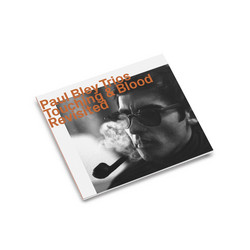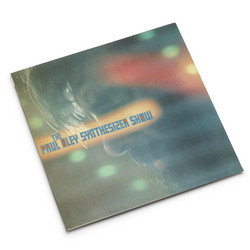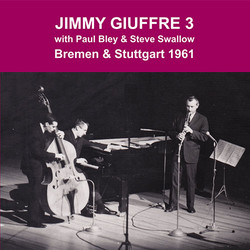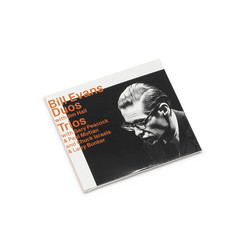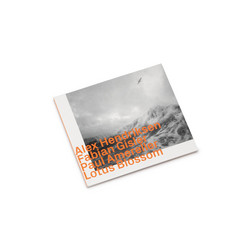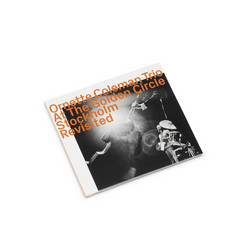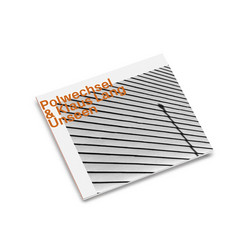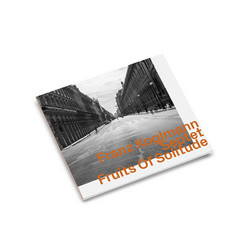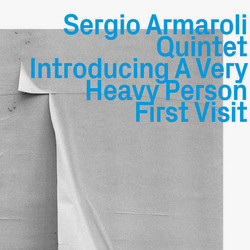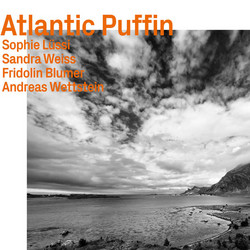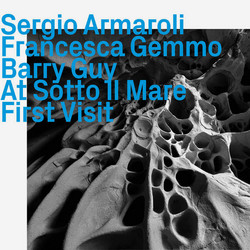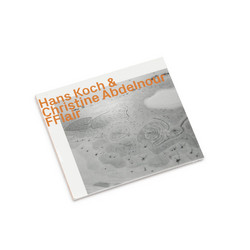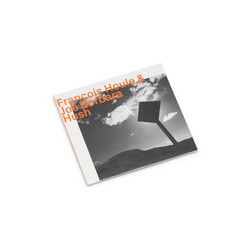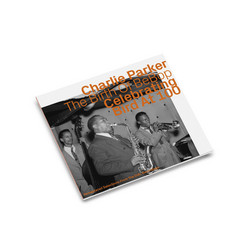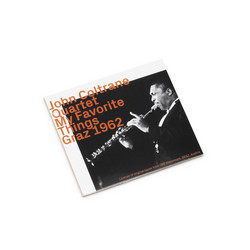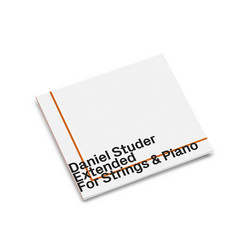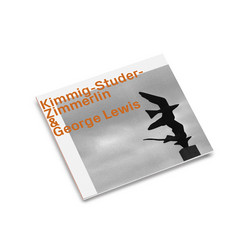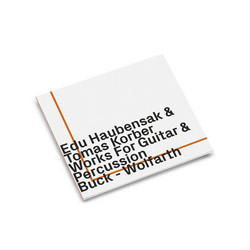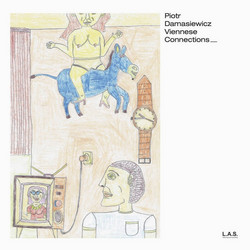"1961 was a breakthrough year for Jimmy Giuffre, although even he may not have realized it at the time, and, alas, what little critical response there was to his music failed, until decades later, to recognize him as one of the innovators redirecting jazz into new forms of improvised activity.
In March and August, Giuffre recorded sessions for Verve which introduced a new trio - Paul Bley on piano, Steve Swallow on acoustic bass, and with him for the first time concentrating solely on clarinet - producing two albums, Fusion and Thesis. In the Fall the trio embarked on a European tour, where audience reaction was apparently mixed, with many listeners unprepared for such intensely focused, harmonically challenging, rhythmically abstract sounds. It was music far more complex and experimental than his previous trios of the 1950s offered, as may be heard on the two concert recordings which were first issued some thirty-plus years after the fact - Emphasis, from Stuttgart, and Flight, from Bremen (originally on hat Art, both currently available together on Emanem). And now there is this document, a third concert, which confirms what we already knew, and adds some special moments unlike anything heard before.
The reorganization in Giuffre's compositional style and attitude which emerged in the 1961 recordings did not occur in a vacuum, and should be attributed to a gradual evolution, and not a sudden transformation. The new trio was labeled, not unfairly, as "chamber music jazz," and did reflect how the influence of classical music on Giuffre's small group writing had become more prominent throughout the previous decade, ranging from his 1953 "Fugue," included in the album Shelly Manne & His Men, Vol. 1 (Contemporary), to subsequent isolated pieces on his own recordings Four Brothers (Capitol), Tangents in Jazz (Capitol), and The Jimmy Giuffre Clarinet (Atlantic) which featured fully notated arrangements, ambigu- ous harmonic settings, rondos, canons, counterpoint, and a noticeable lack of swing.
By 1961, he came to feel a persistent beat was unnecessary, in fact, inhibiting and intrusive - as was a rigid structure of chords which acted like, in his words, "vertical prisons" for the improviser. His solution was to substitute layers of fluidly adaptable linear melodic development, which he called "slow-motion counterpoint." This concept was at the heart of the new trio, requiring spontaneous contributions from each member, including, as Paul Bley once commented, "individual choice of different [internal] tempi," in addition to freely devised rhythmic responses, an open and varied harmonic environment, and intuitive melodic/intervallic construction. Giuffre proved especially discerning in his choice of Bley and Swallow to accompany him into such uncharted territory; almost immediately they developed a sympathetic, near-telepathic interaction that became even freer and more imaginative with experience, while retaining the coherency and compositional integrity of Giuffre's concept.
Which brings us to the program at hand. There are several compelling reasons for the release of this concert. One is the sheer quality of five of these pieces do not appear on the subsequent live releases. Thus for the first time we can experience the hold-your-breath tension and exquisite poignancy of "Brief Hesitation," the Monkish twists of "Temporarily," and bassist Swallow's heroic exposition in "The Gamut." This performance of the notated "Suite for Germany (Stretching Out)" allows us to more fully gauge its classical influences. And with added familiarity we can better appreciate the lyricism and dramatic gestures that intensify this music. But most importantly, this is an extremely valuable historical artefact, like the discovery of an unknown the music. Although this Graz performance predates the Stuttgart and Bremen recordings, the trio is fully prepared, alert to the extended possibilities of the individual pieces (although all but two were drawn from the studio recordings earlier that year, they are transformed by the spontaneous processes Giuffre initiated), and, as the opening version of Carla Bley's "Ictus" shows, they are exhilarated by the shifting perspectives, the discipline of control and the candor of chaos. Another benefit is that Beethoven piano sonata or a cache of unpublished Marianne Moore poems. It adds to our knowledge of three significant artists, and shows that artistry can survive the neglect of time and circumstance, if it is shared and celebrated."- Art Lange
